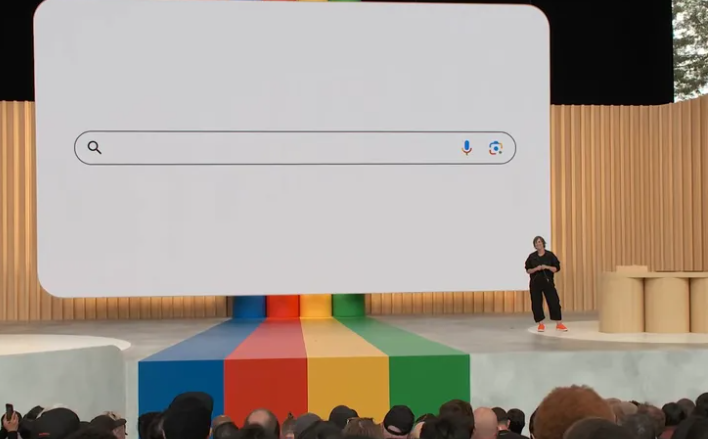Google's AI pitch is a recipe for email hell
Google's AI pitch is a recipe for email hell
Of all the emotions I expected from this week's Google I/O keynote, "fear" was not on my short list. Google has spent a few decades making products that make my life easier. This week, it demonstrated the exact opposite: a way to make communication with other people worse.
Google I/O, this year, focused on artificial intelligence, and one of its focal points was motion-based text creation, specifically in Google's Office suite. At several points during the keynote, it featured a system called "Help Me Write" — which rewrites simple prompts in Gmail and other apps as more sophisticated paragraphs of text. But more polished doesn't automatically mean better.
Good writing can delight us with intriguing turns of phrase. It can tell us something about how a person thinks and feels. Or it may give some kind of useful information about the world. And there's no reason AI can't play a role. I've seen writers use generative tools to create cluttered prose or to summarize data in a readable way. I'm excited to see people finding new uses for it.
But Google's platforming ideas were almost as impressive in their ability to serve any of the original purposes of writing. Its examples of Help Me Write Chill chill out the worst tendencies of "professional" communication. They're bland, bloated boilerplate indicative of something human that uses more words to say less.
Let's look at one of the examples. At the beginning of the keynote, a presenter auto-generates a job description for a textile design position that they (in the demo's scenario) send out to the world. Later, another presenter answers it, providing the following prompts:
The latter version is clearly the way you're expected to apply for a job, because written by a human, it suggests you're committed enough to type a multi-paragraph answer and some class. And kill cultural markers. able to do. However, the AI-generated response serves neither of those purposes. It was almost immediately built on the basis of a predictive text system that required minimal English-language proficiency, and until now, the system could only handle fairly formulaic writing; It will not be a substitute for human action in many real world situations. So all of this produces a longer and more stilted version of the original prompt - one that probably only has value until everyone starts hoping it was written with AI.
And worse, the AI generation reinforces the idea that overzealous American business is the required way to write speech, even if it is a required skill for the job. I've seen thought-provoking stories about people with dyslexia who use ChatGPT to make texts that are - as the Washington Post article puts it - "perfectly professional and polite." But there is an unspoken, simple alternative: being willing to accept the wide variations in how people communicate. I won't complain to someone who uses AI writing to meet largely arbitrary standards, but on a society-wide level, it's a linguistic arms race toward a more boring future.
For another example, try this friendly message of congratulations from Google Android Engineering VP Dave Burke to SVP of devices and services Rick Osterloh:
I assume it's tongue-in-cheek because I know the way executives send personal emails, and they seem totally comfortable with one-sentence punctuation-free missives. But then, it's even worse! It tells me very little about how the sender feels. It takes longer to read. This makes the sender sound like an interchangeable robot.







No comments